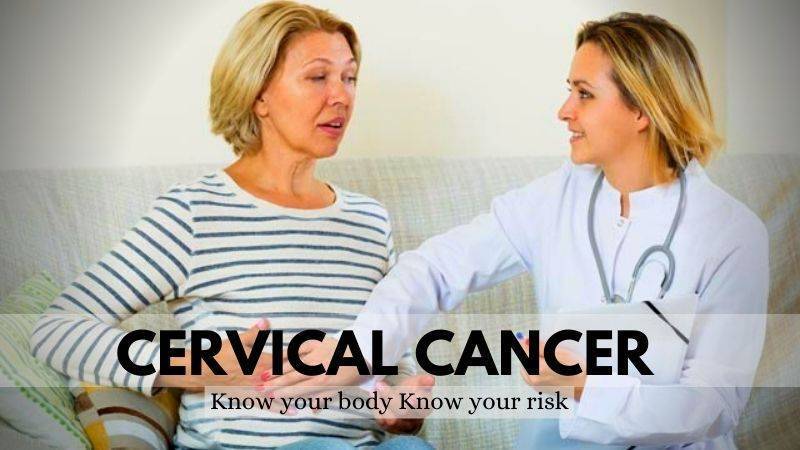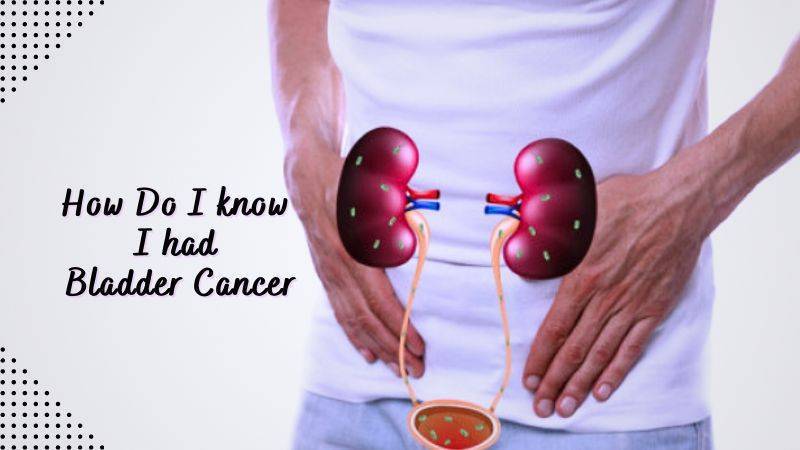“Know Your Body, Know Your Risk: Get Tested for Cervical Cancer Today!”
Cervical cancer is serious and is the most common type of cancer in women. Let us discuss how to know if you have cervical cancer, including the signs and symptoms to look out for, as well as the tests and treatments available.
How Is Cervical Cancer Diagnosed?
What is Cervical Cancer?
Cervical cancer is cancer that starts in the cells that line the cervix, the lower part of the uterus. It affects the cells of the cervix, which connects to the vagina. When the cervix is cancerous, cancer may spread to other parts of the body.
The most common form of cervical cancer is the human papillomavirus (HPV) infection.
What are the symptoms?
 Symptoms of cervical cancer can vary depending on the stage of cancer, but some common signs and symptoms include:
Symptoms of cervical cancer can vary depending on the stage of cancer, but some common signs and symptoms include:
• Abnormal vaginal bleeding, such as bleeding between periods, after intercourse, or after menopause
• Unusual vaginal discharge that may be watery, pink, or foul-smelling
• Pelvic pain or pain during intercourse
• Pain in the legs or lower back
• Unexplained weight loss
• Fatigue
If you experience any of these symptoms, it is important to see your doctor for a diagnosis. Early detection and treatment of cervical cancer can improve the chances of successful treatment.
Long-Term Effects of Cervical Cancer
Depending on the stage of cancer and the individual, long–term effects can range from minor to major and may include:
• Chronic pain
• Infertility
• Fatigue
• Nerve damage
• Sexual dysfunction
• Urinary or fecal incontinence
• Lymphedema
• Organ damage
• Cognitive impairment
• Secondary cancers
• Emotional distress
Treatment Options
Treatment options for cervical cancer include surgery, radiation therapy, chemotherapy, targeted therapy, and immunotherapy.
Surgery is typically used to remove the cancerous tissue and may include a hysterectomy, which is the removal of the uterus.
Radiation therapy uses high–energy particles or waves to damage cancer cells and stops them from growing.
Chemotherapy uses drugs to destroy cancer cells and can be used before or after surgery.
Targeted therapy is a form of treatment that uses drugs to target specific molecules within the cancer cells,
Immunotherapy boosts the body’s immune system to fight cancer cells.
Risk Factors
Cervical cancer can be caused by a variety of factors. However, some of the most common risk factors include:
- HPV infection
- The use of certain types of birth control pills
- Using an IUD
- Having a cervix that is more than 2 cm long
- Having a strong family history of cervical cancer
- Smoking
- Having multiple sex partners
- Having a poor diet
- Having a lack of physical activity
- Having a history of early-onset puberty
- If the woman has surgery to remove the baby
- If she has pre–existing conditions such as pre–fertilization or periodontal disease
- If she has a history of megaloblastic diseases such as ochondopaths or punctate her mast
- Some women also may become infected with cancer–causing bacteria during sex or if they are pregnant.
How Can I Reduce My Risk of Developing Cervical Cancer?
There are steps you can take to reduce your risk of developing this type of cancer.
First, it is important to get regular Pap tests. Pap tests can detect abnormal cells in the cervix, which can be an early sign of cervical cancer.
It is recommended that women between the ages of 21 and 65 get a Pap test every three years. Women over the age of 65 who have had regular Pap tests with normal results may not need to be tested as often.
Second, you should get the HPV vaccine. HPV, or human papillomavirus, is a virus that can cause cervical cancer. The HPV vaccine can help protect against certain types of HPV that can lead to cervical cancer. It is recommended that girls and boys between the ages of 11 and 12 get the HPV vaccine.
Third, you should practice safe sex. HPV is spread through sexual contact, so using condoms and limiting the number of sexual partners can help reduce your risk of getting HPV and developing cervical cancer.
Finally, you should not smoke. Smoking increases your risk of developing cervical cancer. If you do smoke, quitting can help reduce your risk.
By following these steps, you can reduce your risk of developing cervical cancer.






